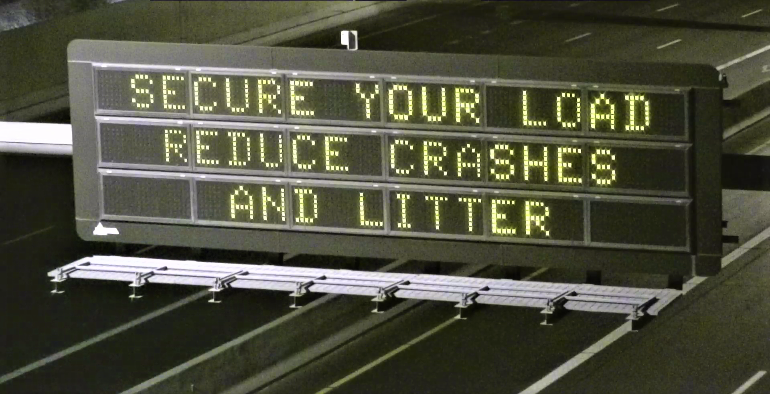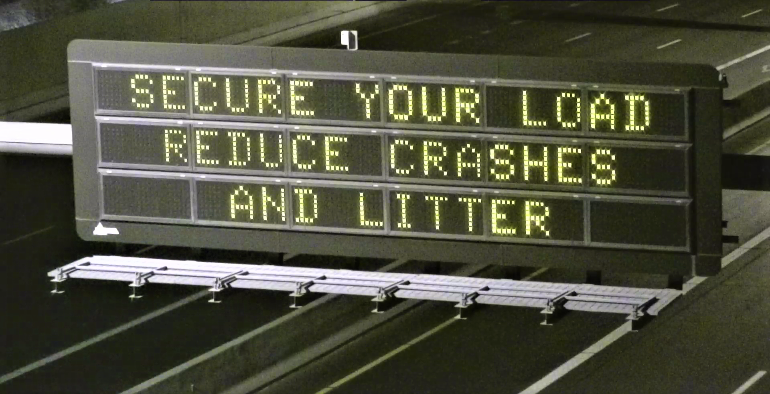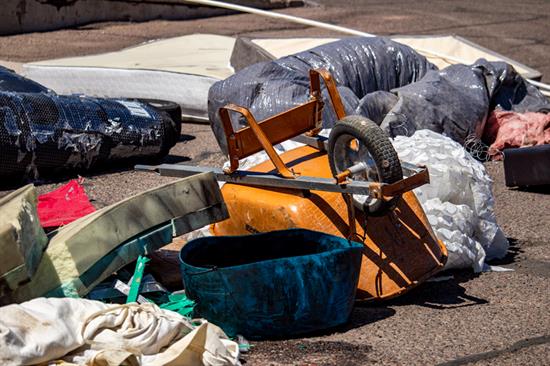Is your load secure? Make sure!
Is your load secure? Make sure!

Sound familiar?
It was such a short drive and I wasn't driving fast.
The items were too heavy to fall.
There were only a few items in the truck bed.
Despite these common excuses, refrigerators, couches, barbecue grills and mattresses routinely fly from vehicles onto Arizona highways, creating road hazards that can lead to serious, even fatal, crashes. And that doesn't even include the trash, brush and food wrappers we see too often on our roads.
You name it, it's been on an Arizona highway, up to and including Christmas trees. This means ADOT crews or Arizona Department of Public Safety troopers have to remove these items from highways, which is not only dangerous, but can also lead to traffic delays.
That's why on June 6, Arizona will recognize Secure Your Load Day. The day helps raise awareness about the dangers of loose debris on highways that can come from unsecured loads. On Sunday, look for messages on our overhead message boards reminding drivers to secure their load.
Unsecured loads aren't just unsafe, but against the law. According to the Arizona Department of Public Safety, violators could be charged with a class two misdemeanor. The fines, plus court costs, can be more than $1,000, depending on injuries. Nationally, debris-related crashes number more than 51,000 a year, according to the Maricopa Association of Governments (MAG) Don't Trash Arizona Secure Your Load webpage. In 2017, Arizona logged more than 800 such crashes, including one fatality, according to MAG.

You can easily contribute to a safer commute for everyone if you secure your load. It takes a little planning and a little time to secure your loads, but it sure beats the alternative. Here are some good tips from from the MAG webpage:
- Large or heavy items should be firmly secured with solid straps, rope, bungee cords, or netting. Tie large items directly to your vehicle. Tied down materials must be able to withstand wind up to 70 miles per hour on the highway. At that speed, the wind is providing about a 20-pound-per-square-foot push, which can dislodge those loads and push them off your vehicle.
- Do not use restraints if they are frayed, cut or damaged.
- For loose, lighter items such as tree clippings, a sturdy plastic or canvas tarp or netting can be used to keep items in place. Tie the tarp securely or it might become road debris as well.
- Put lighter weight things at the bottom of the load and make sure they are secure. Evenly distribute the load to prevent it from sliding.
- Keep materials level with truck bed or trailer unless tied down, netted or under a tarp.
- Double-check your load to make sure it is secure at the back and on the sides and top. Remember that loads can move and settle during a journey, allowing restraints to loosen. If possible, recheck restraints shortly after beginning your trip.
- Ensure both the vehicle and trailer are in good mechanical condition and roadworthy. Check that your vehicle is rated to tow the load. Remember that your load will make your vehicle less maneuverable and it will take longer to stop.
- Ask yourself: Is there any chance of debris falling or blowing out of my vehicle? Would I feel safe if I were driving behind my vehicle? What would happen to my load if I had to brake suddenly or if I hit a bump?
Remember, if you see debris on a freeway, it's an emergency. Please call 911 right away.
You can learn more about how to keep items off our roads on the Secure Your Load page on our Focus On Driving website.

